Filter by
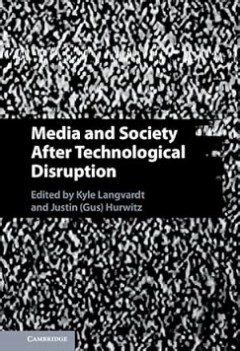
Media and society after technological disruption
This interdisciplinary collection studies the Internet's effects on traditional media. Part 1 deals with the breakdown of trust in the media; Part 2 outlines the changing law of defamation and privacy; Part 3 analyzes the challenge of online content moderation; and Part 4 considers the financial challenges facing journalistic enterprises
- Edition
- -
- ISBN/ISSN
- 9781009174411
- Collation
- xiii, 293 pages
- Series Title
- -
- Call Number
- 302.23 LAN m
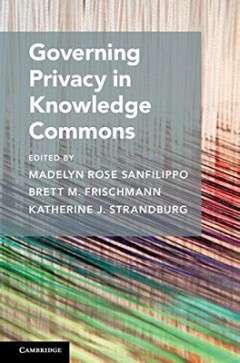
Governing privacy in knowledge commons
Privacy, in contrast with secrecy, is a relational concept, achieved when personal information is shared appropriately between actors. Viewed in this way, privacy is necessarily contextual and complex because norms about appropriate flows and use of personal information are socially negotiated and often contested. (Nissenbaum, 2009) Privacy is thus a problem of collective action. Moreover, pers…
- Edition
- -
- ISBN/ISSN
- 9781108749978
- Collation
- xi, 289 pages; illustration
- Series Title
- Cambridge studies on governing knowledge commons
- Call Number
- 342.08 SAN g
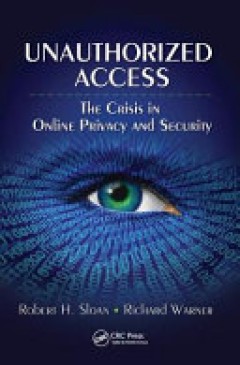
Unauthorized access : the crisis in online privacy and security
Going beyond current books on privacy and security, Unauthorized Access: The Crisis in Online Privacy and Security proposes specific solutions to public policy issues pertaining to online privacy and security. Requiring no technical or legal expertise, the book explains complicated concepts in clear, straightforward language. The authors two renowned experts on computer security and law explore…
- Edition
- 22
- ISBN/ISSN
- 9781138436923
- Collation
- xxiii, 401 p
- Series Title
- -
- Call Number
- 323.4302854678 ROB u

Modern socio-technical perspectives on privacy
This open access book provides researchers and professionals with a foundational understanding of online privacy as well as insight into the socio-technical privacy issues that are most pertinent to modern information systems, covering several modern topics (e.g., privacy in social media, IoT) and underexplored areas (e.g., privacy accessibility, privacy for vulnerable populations, cross-cultur…
- Edition
- 1
- ISBN/ISSN
- 9783030827861
- Collation
- vi, 462p. ill.
- Series Title
- -
- Call Number
- 005.8 KNI m

New Islamic urbanism : the architecture of public and private space in Jeddah…
Since the dawn of the oil era, cities in Saudi Arabia have witnessed rapid growth and profound societal changes. As a response to foreign architectural solutions and the increasing popularity of Western lifestyles, a distinct style of architecture and urban planning has emerged. Characterised by an emphasis on privacy, expressed through high enclosures, gates, blinds, and tinted windows, ‘New…
- Edition
- -
- ISBN/ISSN
- 9781787356429
- Collation
- xvii, 239 p. ill;
- Series Title
- -
- Call Number
- 720.9538 NEW S
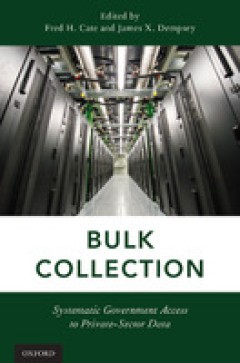
Bulk collection: systematic government access to private-sector data
In June 2013, Edward Snowden revealed a secret US government program that collected records on every phone call made in the country. Further disclosures followed, detailing mass surveillance by the UK as well. Journalists and policymakers soon began discussing large-scale programs in other countries. Over two years before the Snowden leaks began, Cate and Dempsey had started researching systema…
- Edition
- -
- ISBN/ISSN
- 9780190685515
- Collation
- xxxiv, 471 p.: ill
- Series Title
- -
- Call Number
- 342.0858 BUL b

The Huawei and Snowden questions : Can electronic equipment from untrusted ve…
This book answers two central questions: firstly, is it at all possible to verify electronic equipment procured from untrusted vendors? Secondly, can I build trust into my products in such a way that I support verification by untrusting customers? In separate chapters the book takes readers through the state of the art in fields of computer science that can shed light on these questions. In a …
- Edition
- -
- ISBN/ISSN
- 9783319749501
- Collation
- xiv, 116p. : ill.
- Series Title
- -
- Call Number
- 005.8 LYS h

The privacy engineer's manifesto : getting from policy to code to QA to value
"It's our thesis that privacy will be an integral part of the next wave in the technology revolution and that innovators who are emphasizing privacy as an integral part of the product life cycle are on the right track." --The authors of The Privacy Engineer's Manifesto The Privacy Engineer's Manifesto: Getting from Policy to Code to QA to Value is the first book of its kind, offering industr…
- Edition
- -
- ISBN/ISSN
- 9781430263562
- Collation
- xxxvi, 400p. : ill.
- Series Title
- -
- Call Number
- 005.8 DEN p
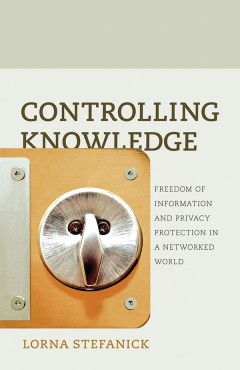
Controlling knowledge : freedom of information and privacy protection in a ne…
Digital communications technology has immeasurably enhanced our capacity to store, retrieve, and exchange information. But who controls our access to information, and who decides what others have a right to know about us? In Controlling Knowledge, author Lorna Stefanick offers a thought-provoking and user-friendly overview of the regulatory regime that currently governs freedom of information a…
- Edition
- -
- ISBN/ISSN
- 9781926836614
- Collation
- xi, 251p. : ill.
- Series Title
- -
- Call Number
- 342.0853 STE c
 Computer Science, Information & General Works
Computer Science, Information & General Works  Philosophy & Psychology
Philosophy & Psychology  Religion
Religion  Social Sciences
Social Sciences  Language
Language  Pure Science
Pure Science  Applied Sciences
Applied Sciences  Art & Recreation
Art & Recreation  Literature
Literature  History & Geography
History & Geography